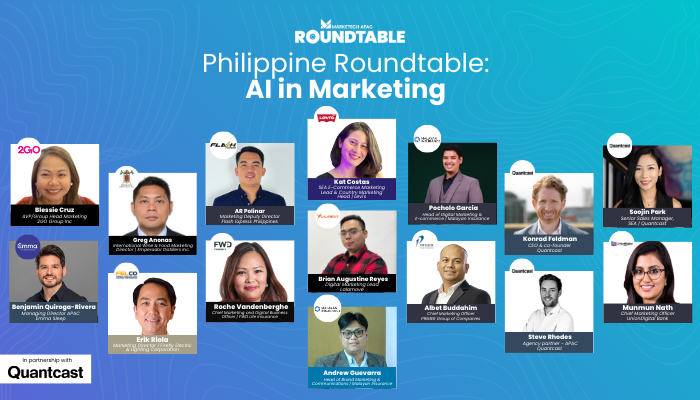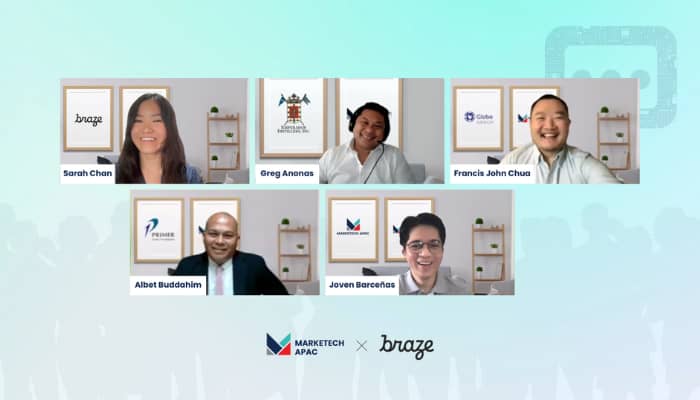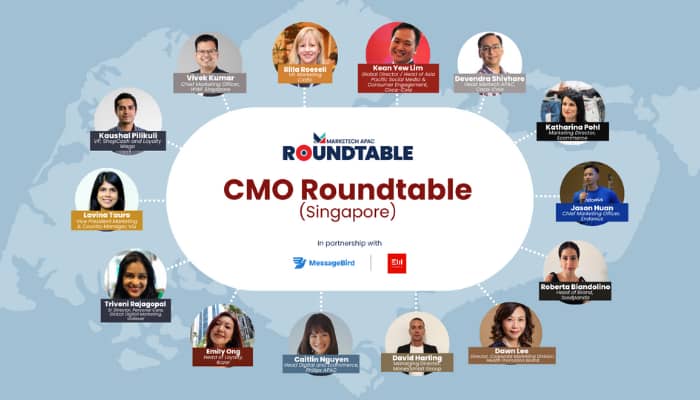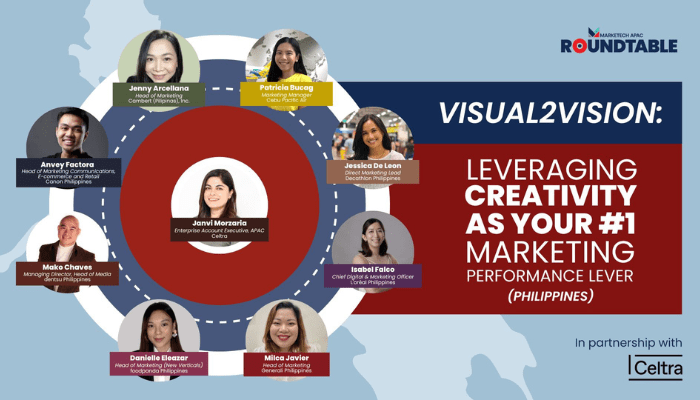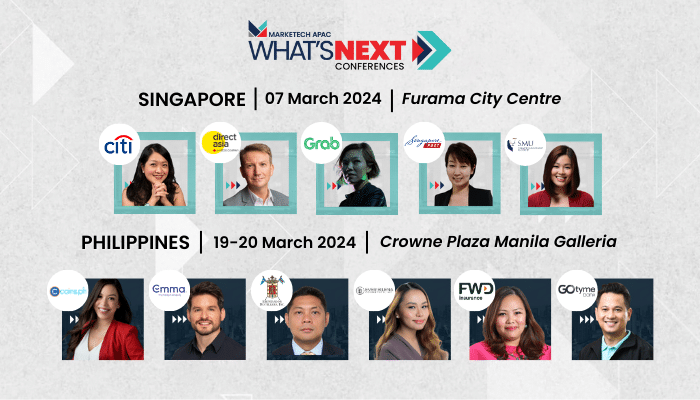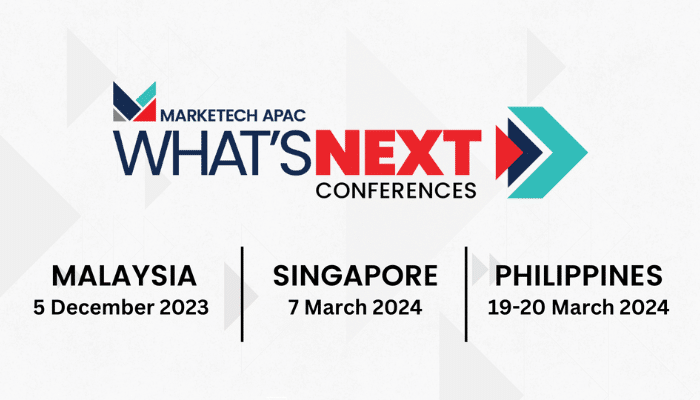Manila, Philippines – The use of artificial intelligence (AI) in marketing strategies has become a defining characteristic of the modern business landscape. AI is transforming how brands interact with consumers, enabling relevant and personalised marketing campaigns, data-driven decision-making, and enhanced customer experiences. And yet, as beneficial as it seems, many are just only starting to explore AI adoption in their strategies. The question is: are marketers in the Southeast Asia region, particularly in the Philippines, ready for these new technologies?
In light of this, MARKETECH APAC invited top Philippine marketing leaders for a roundtable event to share their insights on AI in marketing, and how they’re implementing AI across their marketing strategies. What resulted was a lively and positive outlook on how marketers in the country can move forward as an industry that embraces AI technologies as part of its DNA.
Marketing leaders who attended the event include:
- Blessie Cruz, AVP/group head – marketing at 2GO Group Inc.
- Benjamin Quiroga-Rivera, managing director, APAC at Emma Sleep
- Greg Anonas, international wine and food marketing director at Emperador Distillers, Inc.
- Erik Kristofer Riola, marketing director at Firefly Electric & Lighting Corporation
- AR Polinar, marketing deputy director at Flash Express Philippines
- Rochelle Vandenberghe, chief marketing and digital business officer at FWD Insurance
- Brian Augustine Reyes, digital marketing lead (performance marketing lead) at Lalamove
- Kat Costas, SEA e-commerce marketing lead & country marketing head at Levi’s
- Andrew Guevarra, head of brand marketing and communications at Malayan Insurance
- Pocholo Garcia, head of digital & e-commerce at Malayan Insurance
- Albet Roble-Buddahim, chief marketing officer at PRIMER Group of Companies
- Munmun Nath, chief marketing officer at UnionDigital Bank
Opening with a keynote address by Konrad Feldman, co-founder and CEO of Quantcast; AI-powered technologies have empowered marketers to gain invaluable customer insights, personalise experiences, and optimise campaigns for unprecedented success. Drawing attention to AI’s ability to analyse vast amounts of data in real time, Feldman also underscored its transformative impact on customer segmentation, targeting, and predictive modelling. Moreover, his presentation delivered a compelling case for embracing AI in marketing as an indispensable tool for unlocking untapped potential, driving growth, and shaping the future of customer engagement and brand success.
“AI is math, not magic. Technology when combined with human ingenuity and creativity really can be magic. AI machine learning can improve everyday advertising experiences for billions of consumers, they can help marketers get better return of investment, they can help content producers capture good revenue for producing original content,” he said.

Feldman also added, “The complexity of everyday tasks has grown with the market and many folks still follow the same processes for planning activations in the past, albeit with nicer tools, but more and more time is spent using these tools, and… lots and lots of levers and dials to check on and constantly adjust, and the technology has made the marketer the computer.”
On the benefits and challenges of using AI to for marketing
The attending Philippine marketing leaders also shared their insights on the status quo of AI in marketing and how brands could better use and benefit from it.
Malayan Insurance’s Pocholo Garcia, shared that they use AI to empower their customer experience (CX) strategies.
“[AI] is primarily for CX, at least on my end, and that’s not just in terms of getting people to convert, because that’s just step one. We want the whole experience of choosing us [as their insurance provider] to be smooth for everyone, not just for clients but also for the people on the inside,” he said.

Meanwhile, Lalamove’s Brian Augustine Reyes explained how AI has been integral in improving efficiency, productivity, and data-driven decision-making for brands and marketers alike.
“As someone who handles the day-to-day performance optimisation, AI can really give you more time to do the strategic thinking part instead of just… identifying the right audience [and] thinking up creatives. AI also gives the advantage of creative optimisation, developing what kind of communication is effective for your audience to improve your metrics,” Reyes said.

Meanwhile, PRIMER Group’s Albet Buddahim explained how the versatility of AI can be beneficial on the e-commerce side of things, and further reach untapped databases.
“AI can help us on the e-commerce side. We’re sitting on a 1.7 million email database but the match on Facebook and Google are low. Maybe [AI] can help us find where the rest of these 1.7 million are going in a way where I can drive them to our offers,” he said.

Lastly, Flash Express’s AR Polinar expressed how AI is beneficial in terms of planning, saying, “We use AI for planning and forecasting. It’s really useful for us [in] making sure that our operations are really ready [based on] the data we’re receiving from our partners and customers.”

It is also worth noting that many marketing leaders are also acquainted with more mainstream AI tools, including the generative AI tool ChatGPT.
For Emma Sleep’s Benjamin Quiroga-Rivera, AI tools such as ChatGPT are easy to understand and accessible to use by all, including marketers.
“What we’ve seen particularly with this consumer product, ChatGPT, is just how accessible and easy it is to visualise and sort of ideate creatives, which we found quite fun to play around with,” he said.

Despite the benefits AI has brought to marketers, there are still concerns on whether there are people who are actually capable of using such technology.
This was according to Levi’s Kat Costas, saying, “For us, it’s [about] automation and personalisation… [AI] helps us with the media, in terms of identifying the right segments [and] the right assets that will be served through each of the segments. The big challenge for us is, do we even have the people who can use the technology.”

The negative implications of AI
Despite all of the benefits AI brings to the marketing scene, industry leaders still have levels of uncertainty when it comes to using such AI tools.
Flash Express’s AR Polinar noted that the downside of using AI has been around losing qualitative data upon maximising AI tools.
“One disadvantage would be focusing more on quantity vs quality because of AI. We might not verify the data we receive or not take action immediately. The challenge is to always verify the [data or the] actions of our consumers on the ground,” he said.
For Emperador Distiller’s Greg Anonas, AI still has limited capabilities in exploring unknown marketing territories.
“When it comes to AI–we think it’s a boon to everyone, but it does have some things that it can’t handle. For example, strategic thought and entrepreneurial thinking. What we’re concerned about is, as we move further into AI, we get into things that people have not done before,” he said.

Meanwhile, Erik Riola from Firefly Electric commented that while there are certain negative perspectives on AI technologies, marketers are still open to exploring such tools.
“People tend to focus on the negatives rather than where [AI] could benefit… It is in the understanding, which I feel as a marketer, that we could better use and employ these technologies. But I say that it is a conscious level of optimism because it is still very fresh, at least from the consumers’ perspective,” Riola said.

He added, “All of a sudden now a lot of people are talking about ChatGPT, and as a marketer, you don’t want to be a dinosaur in your industry…you want to learn that technology. And that’s what we are trying to employ today.”
The industry leaders recognised the transformative power of AI in enabling personalised experiences, data-driven decision-making, and improving customer engagement. And expressed the undeniable benefits and potentials of implementing AI in various marketing strategies.
They also highlighted the positive impacts of AI in efficiency, productivity, and creative optimisation–as it becomes more and more accessible for marketers. While acknowledging these, they also raised the concern of limitations such as investments or time, loss of qualitative data, and marching into unmarked territory.
As AI continues to evolve, the future of marketing holds exciting prospects and could redefine how consumers interact with products and services, taking engagement to unprecedented heights.
However, it’s important to note that while AI offers immense potential, Human creativity, emotional intelligence, and ethical considerations still play crucial roles in designing campaigns that truly connect with audiences on a meaningful level. In this journey, collaboration will be key – between marketers and AI systems, amongst industry peers, and with consumers to ensure that the right balance is struck.



